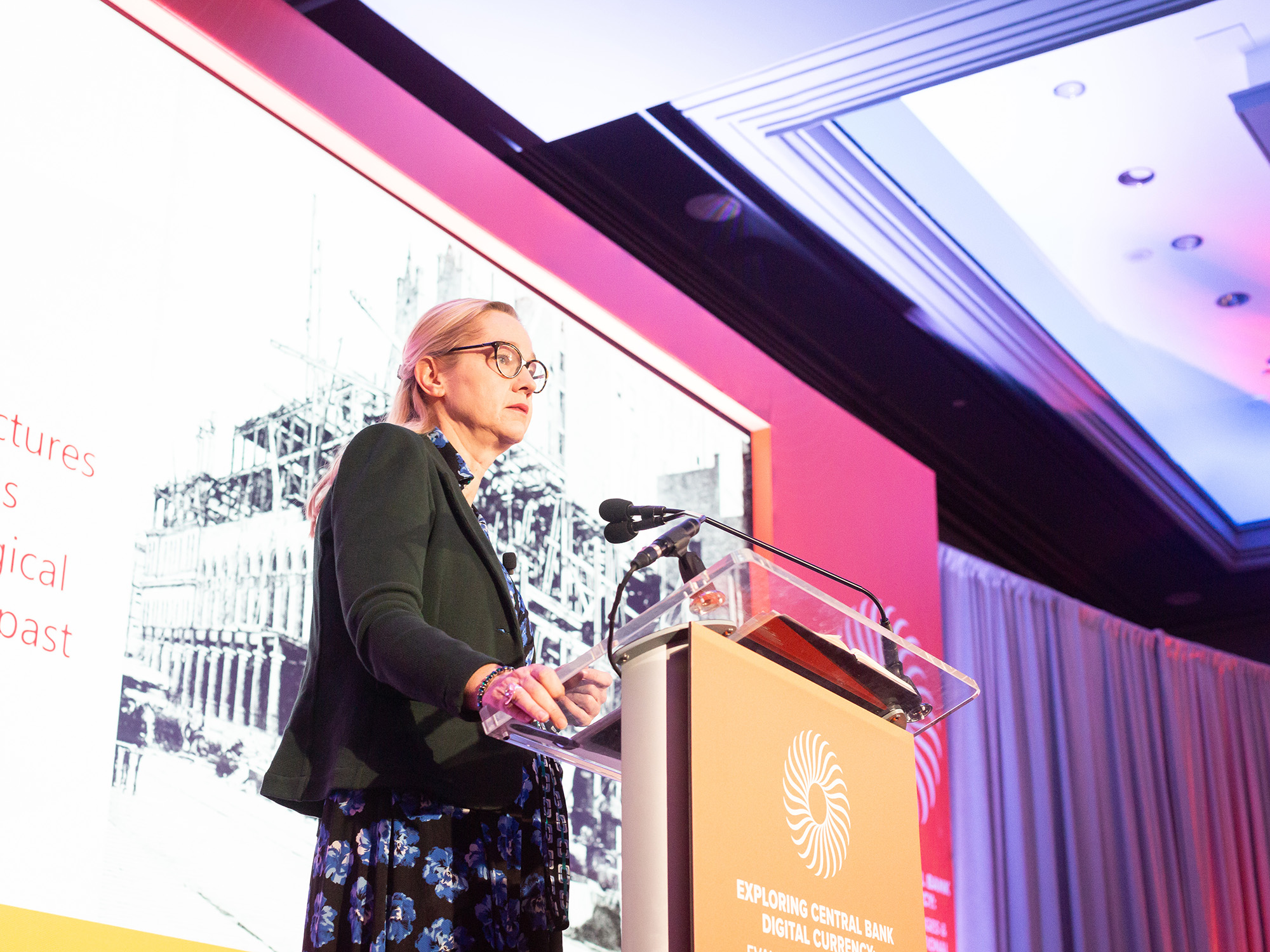The project, announced Tuesday by Bank for International Settlements (BIS) Innovation Hub head Cecilia Skingsley at an Atlantic Council conference, will bring together the International Monetary Fund, World Bank, and BIS to “tokenize”—or apply blockchain technology to—World Bank development aid. The technology aims to help speed up cross-border settlements and make development aid safer, protecting secure information.
The project may also make it easier to guarantee that the aid is fully compliant with regulations against money laundering and the financing of terrorism.
“Will [it] save a lot of money? Will it revolutionize the world? No, probably not,” Skingsley said at the conference on central bank digital currencies (CBDCs) hosted by the Atlantic Council’s GeoEconomics Center. “But I think it’s a very tangible way to put the technology to work.”
Below are more highlights from the conversation, moderated by Alice Fulwood of the Economist, which touched upon shaping the financial system for the public interest and refuting arguments against CBDCs.
Meeting new demand
- Skingsley explained that global technological progress has increased the appetite for cross-border financial transactions that settle instantly, a solution CBDCs offer. “It’s critical to get the right infrastructures in place” to facilitate that.
- With technological change happening “so fast,” primarily driven by the private sector, central banks “need to pay attention,” Skingsley argued.
- “There are many technological ideas out there that have… potential,” she added. “If this is left unchecked, these technologies may develop into services used in our societies in a way that may not have the public interest as the priority.”
- Designing a financial system for a digitized future will require grappling with questions around the protection of privacy, financial stability, geopolitics, and financial inclusion, Skingsley added. She also said that a new economic system should protect people’s right to choose how they spend money. “Cash should continue to play a role. People should have the option to use it if they want,” she argued.
Defying the doubters
- Skingsley pointed to the criticism that retail CBDCs—intended for households or companies—designed for domestic use don’t address any immediate needs, as they don’t tackle cross-border payments. But “if we dismiss CBDCs,” she argued, “we might be preceding opportunities to improve the previous public good, which is money, and we could miss opportunities to provide better and cheaper services to people.”
- In response to those who argue that CBDCs present a threat to privacy and a risk that a country could institute social controls, Skingsley explained that privacy is “not something that we have that comes by chance” and that most countries already have legal protections in place that would cover financial privacy. “These mechanisms,” she said, “should be preserved.”
- She also noted that because privacy relates to the development and strength of democratic institutions, government officials—beyond central banks—should help ensure strong privacy regulations around CBDCs.
- When CBDC skeptics argue that the currency presents a risk to financial stability, Skingsley said she replies that the “train has already left the station” as digital bank runs have already happened. She also argued that CBDCs wouldn’t worsen the problem, as—according to central banks—countries have the tools to counter bank runs.
Setting the standards
- Skingsley said that other private-sector-led crypto projects are a “wake-up call” that central banks cannot “just sit on their hands” anymore. “But that is not necessarily the same thing [as] to say that we need to rush things,” she said, adding that she thinks many countries are exploring CBDCs “at a good pace,” and the paces of their transitions should vary.
- Looking back on many other historical innovations, she noted that the private sector led first, and then the public sector stepped in with needed laws, regulations, and foundations. “We need to think about the regulations and the international standards,” she argued.
- The Swedish banker put these efforts into three categories: The first is principles for financial market infrastructures; she explained that such legal and regulatory standards are already in place through the Basel Committee on Banking Supervision and the Financial Action Task Force.
- But moving forward, Skingsley added, countries should work together on two other categories: Setting standards related to payment-specific technologies—and how to operate them—and establishing cross-cutting technology standards.
- “It’s a collective responsibility to ensure technology ultimately [serves] economically meaningful activities,” Skingsley concluded.
